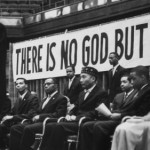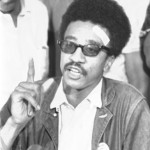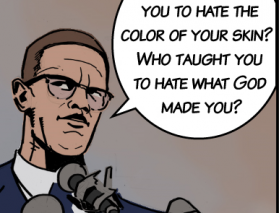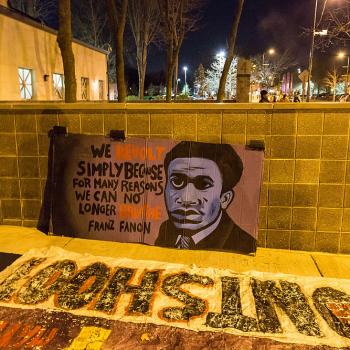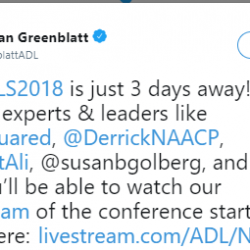“I need to know if I can attend the university to test myself against the best students in the world,” states Kunta
Kinta, in the recently remade Roots mini-series, airing on the History Channel. As an aspiring student of knowledge, Kunta Kinta seeks to study at Timbuktu, a prominent Islamic university that once existed in West Africa.
Unfortunately, his ambitions as a student of knowledge at Timbuktu never came to fruition, as he was kidnapped and taken to the Americas. While on the slave plantation, when Kinta was told to pray, he responded, “White folks don’t like no African god,” and was encouraged to cease his prostrations
Though Roots is largely fictionalized, it articulates a real-world problem for the descendants of African-Muslim slaves. In the Sunni Islamic tradition, an ijazah grants one authority to transmit certain knowledge in the Islamic sciences. The University of Timbuktu was a place to garner such ijzahs. However, under the bondage of slavery, the first generation of African-Muslims was completely cut off from Islamic centers of knowledge and learning.
Moreover, they lived in a world completely hostile to their faith; far from being able to continue the tradition of Islamic learning, slaves were denied the right to practice the basic tenets and rituals of their faith without enduring severe persecution. Having undergone centuries of slavery, Islam was wiped out among slaves.
In the post-slavery era, any Islamic science via science of hadith, fiqh, or even tajweed for the descendants of enslaved Africans, would have to be learned by those outside the community—despite the fact many were descendants of hafis of the Qur’an, scholars of the Maliki Fiqh, and the Asharite school of Islamic theology.
Blacks under slavery were cut off from the entirety of the Sunni intellectual tradition. Orlando Patterson in Slavery and Social Death uses the term “natal alienation” to describe how slaves differed from other human beings because they were not permitted to integrate the wisdom of their forefathers into their live and subjected to social death.The reality of social death was something articulated by black proto-Islamic movements, who described being robbed of their names, languages, religion, culture, God, having been placed in a state of natal alienation.
Despite this, African-Americans constitute one of the largest Muslim ethnic groups in America because they came to Islam as a protest to white supremacy and were influenced by the fact that many of their ancestors were Muslim. However, Afro-Americans have not been able to create indigenous Islamic centers of learning and education aimed at empowering their communities, in a manner that many other Muslim ethnic groups have, in part due to this natal alienation from the Sunni Islamic tradition. In fact, the following is a list of ten suggestions for Afro-American Muslims.
Nine Suggestions for Afro-American
Afro-American Produced Seera series
The Islamic public speaking and lecture circuit is largely Arab-Desi dominated. There are hardly any comprehensive Seera(Propetic biography) lectures given from Afro-Americans with an Afro-American audience that are available on social media. In fact, if one Youtube searches “seera” there is a complete lack of Afro-American representation in such scholarship. We as Afro-American Muslims must produce comprehensive lectures on the seera in the black communication style,(it can even incorporate poetry, spoken word)in order to make the Prophetic biography speak and connect to Afro-Americans.
Seera(Propetic biography) lectures given from Afro-Americans with an Afro-American audience that are available on social media. In fact, if one Youtube searches “seera” there is a complete lack of Afro-American representation in such scholarship. We as Afro-American Muslims must produce comprehensive lectures on the seera in the black communication style,(it can even incorporate poetry, spoken word)in order to make the Prophetic biography speak and connect to Afro-Americans.
Study Rhetoric and Black Oratory
Black Muslims such as Malcolm, Farrakhan, Tynetta and others developed an unrivaled oratorical tradition that would convey the grievances of Black Americans and articulate complex concepts covering topics such as history, sociology, and political science. The art of public speaking among black Muslims traces back to Timbuktu, where rhetoric was studied. We need contemporary rhetoric/oratory classes that codifies this black Muslim oratorical style, codifies it, and use it in the production of Islamic content.
Afro-American Imams Must Answer the Streets
Imams need to be able to address the streets; we need to have halaqas addressing theological issues impacting the black community. Hip-Hop is an art form that emerged from oppressed Afro-American communities: we need to ask ourselves, what are the pressing theological question in Hip-Hop, and how can classical Islamic thought address such questions? We need to make Islam relevant to our people in the struggle and this can only be done by engaging the streets.
Make the Sunnah Speak to the Masses of Our People
When we discuss the Sunnah, we need to be able to extract how the principles found within it, can inspire black brothers and sisters, in the most marginalized of American society, to empower themselves and their communities. When we discuss the Sunnah, we have to make it relevant to the everyday brother and sister on the streets.
Critique White Supremacy in Khutbas as Shirk
The Khutbas that we give should precede from the notion of White Supremacy as the most pervasive form of shirk or idolatry on the planet and we should always be in passionate opposition to this shirk. (See: Dr Sherman Jackson’s “White Supremacy the Beginning of Modern Shirk.)
Document our Struggle and Draw Spiritual lessons from it
We must document our continued struggle against this beginning of modern day shirk by highlighting the struggles of Black Muslim slave rebels to Black muslim freedom fighters in the Black Panther Party. We must draw spiritual life lessons from such slave rebellions to white supremacy and produce lectures on it which makes them relevant to blacks in the contemporary era in our continued struggle.
Classical African Islamic thought and scholars need to be incorporated into Islamic lectures and sermons: from Uthman Dan Fodio, Nana Asmau, Muhammad Bello.etc. and it should be done in a manner that the spiritual lessons extracted from it are made relevant to black people.
We Must create Qu’ranic Apps for Afro-Americans.
Currently Qu’ranic Apps are devoid of any Afro-Americans voices. We need to produce Qu’ran Apps that include Afro-American voices both in the recitation and the English translation, and we should mass distribute such apps so that it can connect with Black People.
Work with Black Proto-Islamic Movements, however heretical:
We must work with Black proto-Islamic movements however heretical. For example, there is a group known as the 5 percent nation who identify as Muslim. They hold the clearly heretical belief that Allah(SWT) is a Black Man, many Muslims would be quick to call them kaffirs, scream A’uzu bil Allah, label this bidah, and not want anything to do with them. The real challenge is can you examine the social-political circumstances that produced this bida, invite them to the Mosque for dialogue and explain intellectually why the original Islamic concept of Tahweed is a better solution for black empowerment in an anti-black world than black anthropocentric conceptions of the Divine, in order to bring them back into the creed of Islam?
The Creation of Afro-American Islamic seminary Schools
We cannot depend on foreign Islamic institutions or universities, especially those in Saudi Arabia, who are largely oblivious to our unique situation as Afro-Americans dealing with natal alienation and have largely been incapable of producing scholars that can improve the community. After centuries of separation from the Sunni tradition and the decline of Timbuktu in West Africa, there is a time for the creation of a new Timbuktu in the form of Afro-American Islamic seminary schools, where Black American Muslims can produce Islamic content,scholarship, train Imams that are capable of speaking to the realities of our people.

